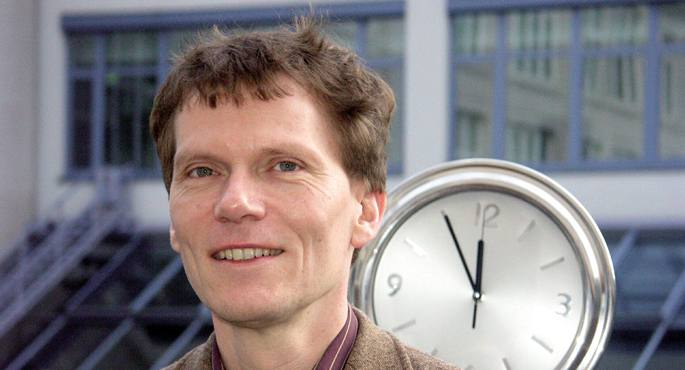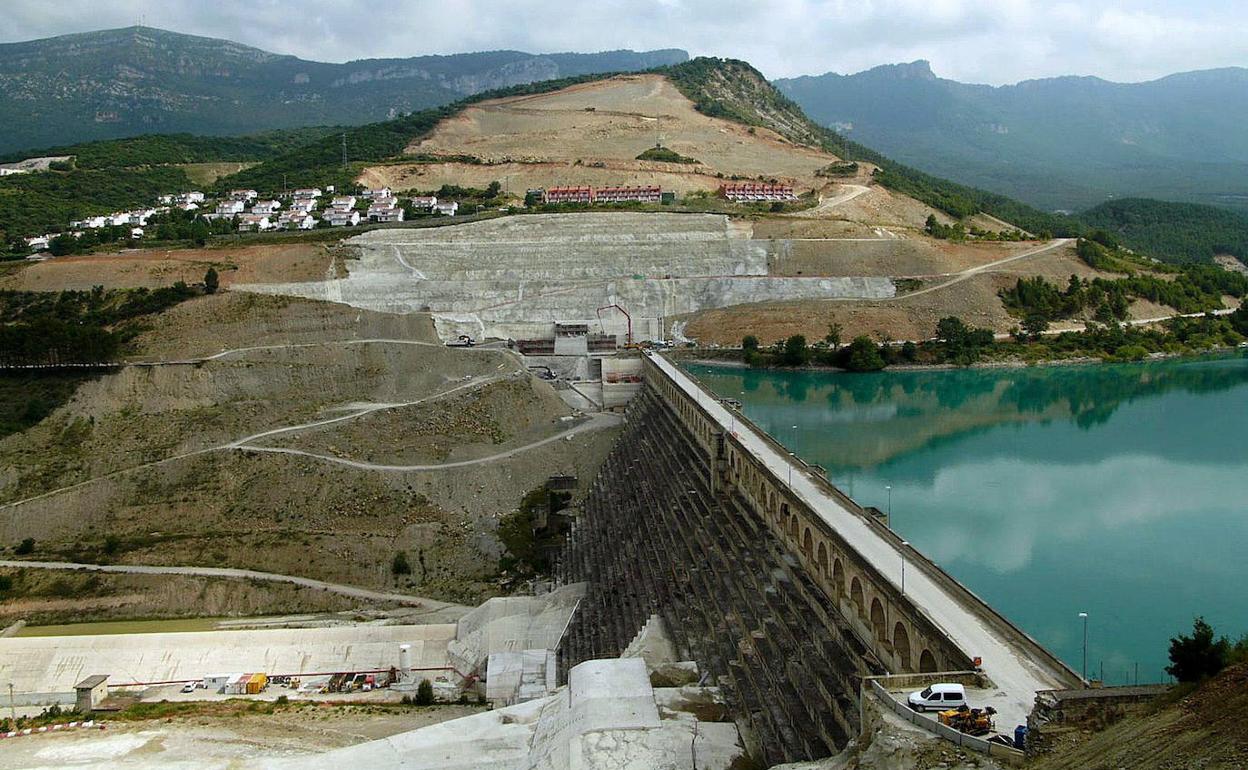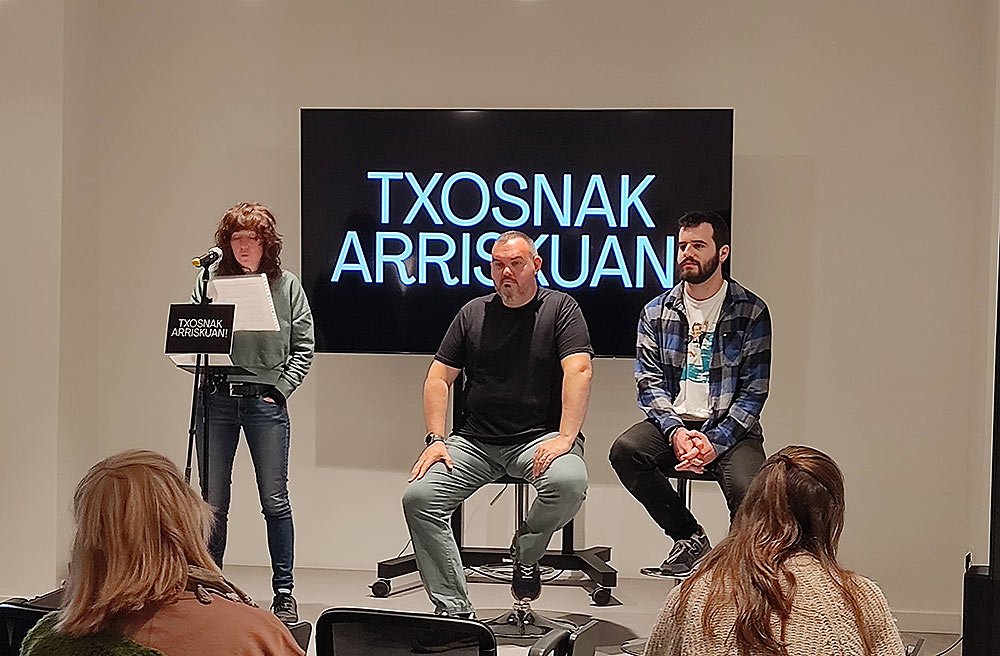That the speed at which we live the crisis has influenced us
- The Enlightenment promised people that growth and acceleration would lead them to a better, freer life. The last effort so far of this speed increase, neoliberalism, has plunged us into the deepest crisis, because it has destroyed all political controls. Democracy requires time and there is hardly any time.

Hartmut Rosa (1965) is a professor of sociology, philosophy and political science at the University of Jena (Germany). They have recently translated their last book into French: Aliénation et accélération. Vers une théorie critique de la modernité terdive.
Elodie Wahle says in Lectures magazine that Rosa may be in the Critical Theory extracted from the famous Frankfurt School. “It proposes not only to reread modern history from the point of view of social acceleration, but also to develop critical research to prevent the project of modernity (development of autonomy) from radically threatening acceleration.”
There are two interviews by Hartmut Rosa, one in English by the Goethe Institute, entitled The financial crises as speeding accident. An interview with Hertmut Rosa; second at Le Monde in French, Au secours! Tout va trop vite! In the following lines we pick up some of Rosa’s words.
Why do we need to speed up? One of the characteristics of modern societies is that they can only be dynamically stabilized, that is, they have to necessarily grow and accelerate. One of the major promises of the Enlightenment was that that would make us freer. But all of a sudden, we've realized that growth and acceleration are necessary to maintain the status quo today. Hope for progress is obscured. In accelerating, we don't play for things to go better, but for things not to get worse.
A fundamental feature of capitalist economies is that they depend on the increasing speed of movement of capital. You can buy and sell for a second, but do not produce or consume. This has led to the removal of the financial markets from the real economy, with the consequence of the large-scale financial crisis and the subsequent general economic crisis.
The objective of neoliberal economies and financial policies has been to abolish controls, arguing that moving freely would develop the economy more quickly. Political control is time-consuming, especially if it is democratic. But also, as the economy goes faster than political control needs, the financial markets and the real economy are also unsynchronised. Today we can make profits without producing anything, selling and buying only stocks that have no real basis.
The economy has managed to separate buying and consumption. People buy more and more, but not more and more. We buy garments that we will never wear, books that we will never read, CDs that we will never hear. The problem arises when the things we buy are no longer things, but financial products, because that is how we help distinguish finance from the real economy.
These are the same experts who have created the crisis. That would be to believe, following that proverb, that the cat will take care of the milk. The greatest danger is that everything will remain the same. And you can't see that politics is strong enough to regain control and slow down the flow of capital.
No life time
After oil, time is the least, with the pathological consequences that this entails. People suffer more than ever from growth and acceleration.
Time has reduced space. With the rise of means of transport, consumption, communication, it seems that the planet has been reduced. You can reach any site quickly, at a cheaper price and without great fatigue, but also, with the acceleration of communications, it is possible to download from the Internet any music, book or film of the country you want in a single click.
However, every ever faster decision reduces the chances of enjoying the country we are going through or the product we consume. During the holidays we have to do everything very quickly, gymnastics, regime, leisure time, reading the book, listening to the album, visiting a site. This acceleration of the pace of life causes a lot of stress and frustration. After all, consumption itself cannot accelerate too fast.
Coming back on vacation we have the full mailbox, new invoices come, children need a new material for the school, we would have to sign up for a professional course, we would improve professionally in the language school, take care of the retirement plan, the best health insurance possible, I'm not at ease with the phone company, and I realize that I've forgotten the body, I don't exercise enough, I risk losing my youthful aspect, so competitive.
After all, the increase in the number of actions per unit of time, the acceleration of the pace of life, makes us all agitated. Inside and outside of us. Shorter are meals, breaks, family rats, funerals, walks, sleep. We must therefore make these moments denser. Live faster, pray, eat... You shorten distances, you speed up movements, you multiply multitars to do more than one thing at a time. This aggravates impotence, guilt, stress, suffocation of schedules, the fear of not being able to follow. We realize that we don't see how our lives go, that it escapes us.
In the age of acceleration, the present is unstable, it is shortened, everything goes away immediately, trades, technologies, objects, couples, families, political programs, people, knowledge, consumption.
In premodern society, until the 20th century, the present encompassed at least three generations, the world did not vary much between grandfather and grandson. In the modern era XX.eko, in the first half, it was reduced to a generation: his grandfather knew that his grandchildren were going to lead a different life, could not teach them much, it was in their hands to create a new world, for example, in May of 68.
In our late modernity, the world changes more than once for every generation. The father cannot teach the girl much about the family that is constantly changing, or about the trades of the future. You will hear 18-year-olds how things were “before,” when they were 10 years old. The present is shortened, it flees. It narrows our feeling towards reality, towards personality.
Andrea Velasko dietista eta nutrizionistak elikaduraren bidez menopausiak eragindako aldaketak kudeatzeko zenbait gako eman ditu.
BRN + Auzoko eta Sain mendi + Odei + Monsieur le crepe eta Muxker
Zer: Uzta jaia.
Noiz: maiatzaren 2an.
Non: Bilborock aretoan.
---------------------------------------------------------
Ereindako haziek ura, argia eta denbora behar dute ernaltzeko. Naturak berezko ditu... [+]
Antonio Turiel fisikari eta CSICeko ikerlariak aspaldiko urteetan ez bezala bete zuen Hernaniko Florida auzoko San Jose Langilearen eliza asteazkenean. Zientoka lagun elkartu ziren Urumeako Mendiak Bizirik taldeak antolatuta Trantsizio energetikoaren mugak izeneko bere hitzaldia... [+]























